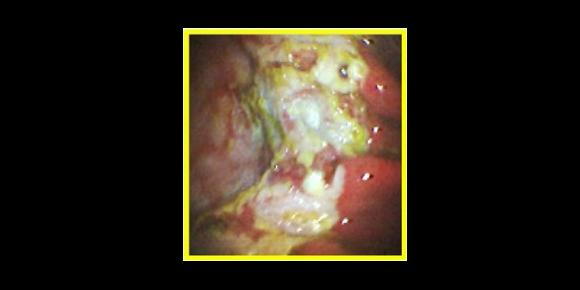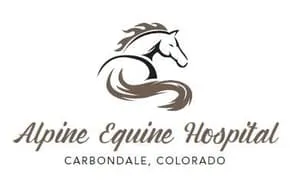
There is a lot of attention given to gastric ulceration in horses and rightfully so. Incidence rates in gastric ulcers or EGUS range from 50-70% on studied populations. Gastric ulcers are areas of erosion of the lining of the stomach and in some cases the anterior duodenum. Gastric ulcers are the result of gastric acid (hydrochloric acid secreted by parts of the stomach lining), and, to a lesser degree, the digestive enzyme pepsin, irritating the lining of the stomach, causing ulceration. In people they are commonly related to infection with the bacterium, Helicobacter Pylori, but no infectious cause of gastric ulcers has been identified in horses. More often due to the stress of rigorous training and competitions, performance horses have a high susceptibility to developing equine gastric ulcer syndrome (EGUS). In fact, it has been estimated that approximately 60-93% of performance horses experience some symptoms of this condition at some time in their life. Additional risk factors for ulcer development in horses beyond intensive management and stabling include episodic feeding of large, carbohydrate rich feedstuffs and high levels of exertion and the use of non-steroidal anti-inflammatory drugs such as Phenylbutazone and Banamine for musculoskeletal lameness conditions. Picture of a stomach ulcer
The symptoms of gastric ulceration regardless of the cause are often vague and non-specific but can include unthriftiness, poor hair coat, episodic colic, poor performance, decreased appetite, weight loss and cinchy behavior. If EGUS goes undetected for too long, it can cause issues such as damage to the gastric lining of the stomach, swelling of the cells in the pyloric region, delayed gastric emptying, an increased pH, and eventually colic. The definitive diagnosis of gastric ulceration can only be done with gastroscopy which is performed following a 19-20 hour fast using a flexible 3-meter endoscope is passed through the nose and into the stomach. This procedure allows the doctor to visualize the lining of the stomach and look for signs of ulceration.
Alpine Equine Hospital is offering a special promotion on August 14th for those owners wishing to have their horses scoped. Spaces are limited so give us a call today if your horse is showing any vague issues like gastric pain and/or ulcers.
Our practice offers services in the field or at our hospital for your convenience. Our endoscope allows us to visualize the gastrointestinal (GI) tracts up to the beginning of the small intestine. Not only is scoping your horse definitive diagnostically, but gastroscopy allows us to monitor for EGUS and diagnose it early on and evaluate their response to therapy as a significant portion of affected horses require more than a month of oral Gastrogard therapy.
Getting your horse scoped involves an 18-20 hour fasting period prior to the procedure which is done under routine sedation. The advantages of scoping your horses versus placing them on empiric Gastrogard treatment centers on the diagnostic clarity of determining which type of ulcers your horse has and the severity of their condition. Gastroscopy also allows us to appropriately dictate the length of treatment and medications used for that treatment.
Treatment of squamous ulcers is done with omeprazole (Gastrogard tm). The omeprazole is a proton pump inhibitor uniquely formulated for horses, that limits the production of the typical stomach acid and allows the pH of the stomach to be higher and favor healing. It is often combined with Sucralfate to help provide a protective barrier to healing ulcers. Alternatively, if your horse is found to have glandular ulcers, a combination of medications is often necessary including Gastrogard, sucralfate and misoprostol.
To schedule an assessment to see if your horse could benefit from this type of exam, please contact Alpine Equine Hospital at 970-379-7100
https://thehorse.com/17675/tips-for-managing-gastric-ulcers-in-performance-horses/
Subject: Gastroscope
Sign up today!
Alpine Equine Hospital is partnering with Boehringer Ingelheim to host an equine gastroscopy clinic.
When: Wednesday August 14, 2024
Cost: $250 per horse + any associated stall fees
Additional Gastrogard medication discounts available for those found to have squamous stomach ulcers on their exam.
Appointments are limited. Call or email us for more info and to reserve your horse’s appointment.
Call: 970-379-7100
Email: [email protected]
